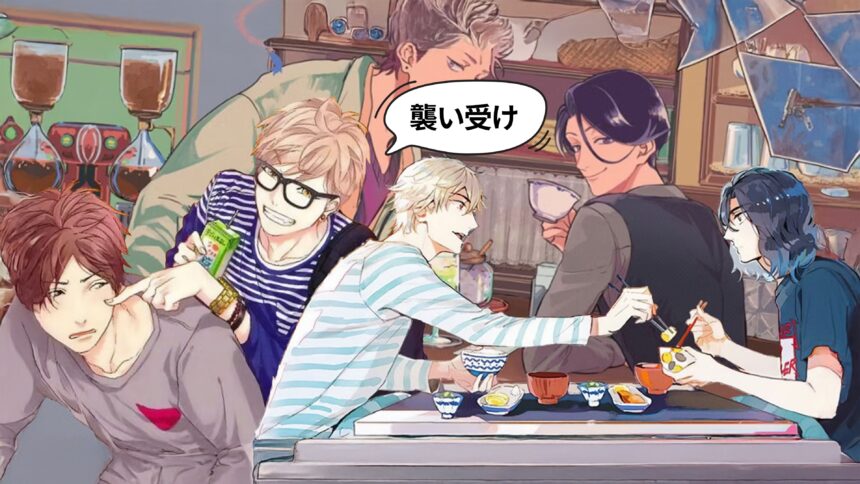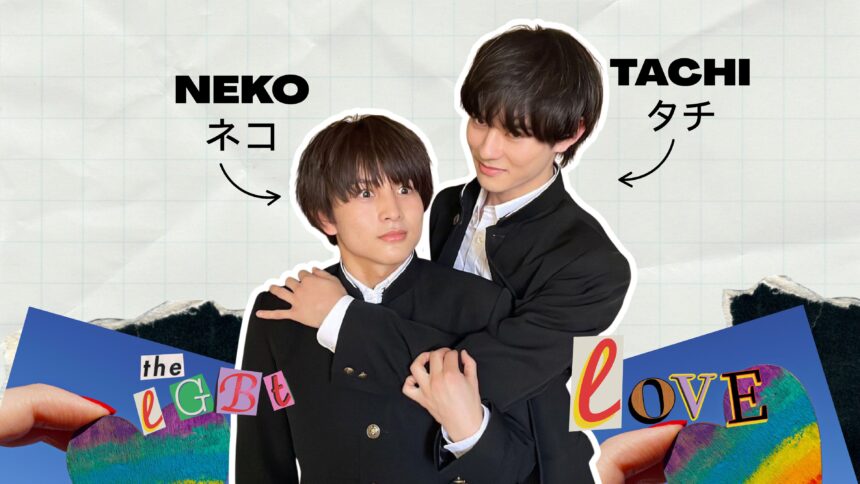If there’s one passion that unites any and all fandoms, it’s creating niche vocabulary. It not only helps to clarify things that might not map on to “typical” terminology, but is a helpful shibboleth for identifying fellow fans. Nowhere is this more true than in the community of Boys Love (BL) aficionados.
With a long history of popularity in Japan, and increasing recognition overseas, slang from Japan is becoming increasingly common among English-speaking audiences. For newer fans, or those who dabble, however, the BL slang (a subsection of gay slang) can often be a little confusing at first. So, we’re taking the opportunity to enlighten our as yet uninformed readers.
Uke (ウケ) and Seme (セメ)
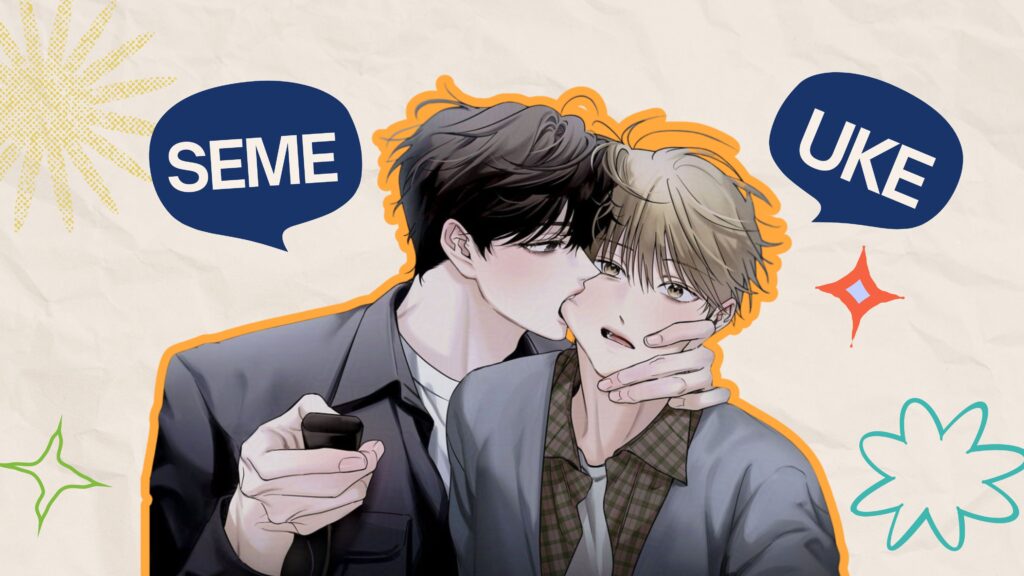
These two terms are, essentially, equivalent to the English “bottom” and “top,” respectively. “Uke” comes from “受け,” which means “to receive,” and so sets them up as the bottom sexually. Conversely, “seme” is from “攻め,” which is the equivalent of “attacker.” This might sound aggressive, but is essentially “top.”
These two terms are most often confined to describing manga and/or anime characters, but as BL media has become more and more popular, you may also find people describing themselves in these terms — especially on dating apps. However, it is important to realize that this does not mean that you should address someone else this way without getting their say-so, as it can be offensive.
Neko (ネコ) and Tachi (タチ)
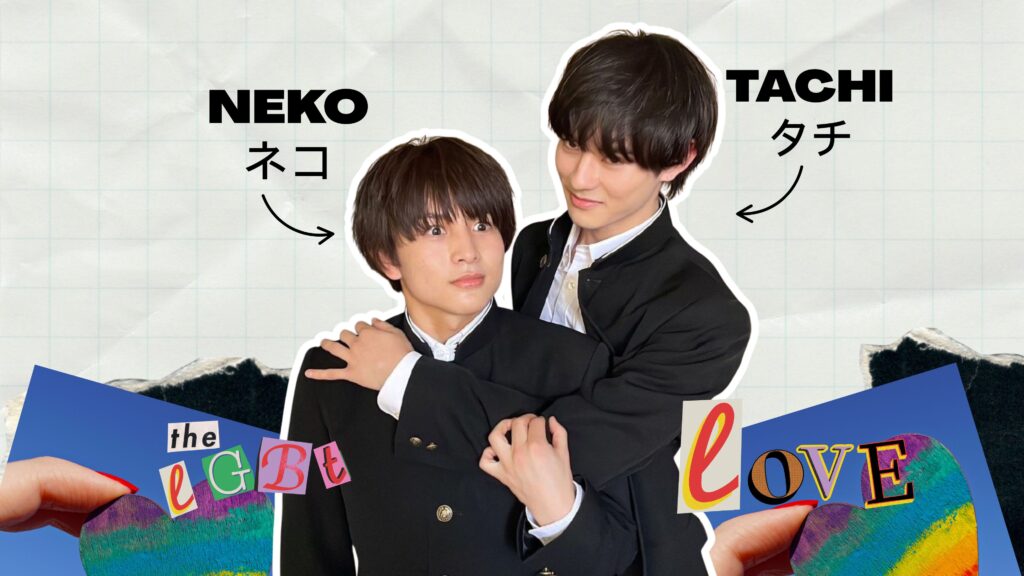
Neko and Tachi are also terms for bottom and top, respectively, but unlike uke and seme, they are considered more neutral and less problematic. Neither of these words have well-defined origins, but neko is thought to be a contraction of neruko (寝る子), general slang for “someone I’m sleeping with,” or from the word for a wheelbarrow, referring to how the bottom’s legs might be held.
Tachi may come from the kabuki word tachiyaku (立ち役), or “standing role,” the lead role in a play. It could also be derived from tachi, as in 太刀, or “long sword,” or — more simply — from 起ち, or “to stand up,” slang for a hard penis.
襲い受け (Osoi-Uke) – The Aggressive Uke
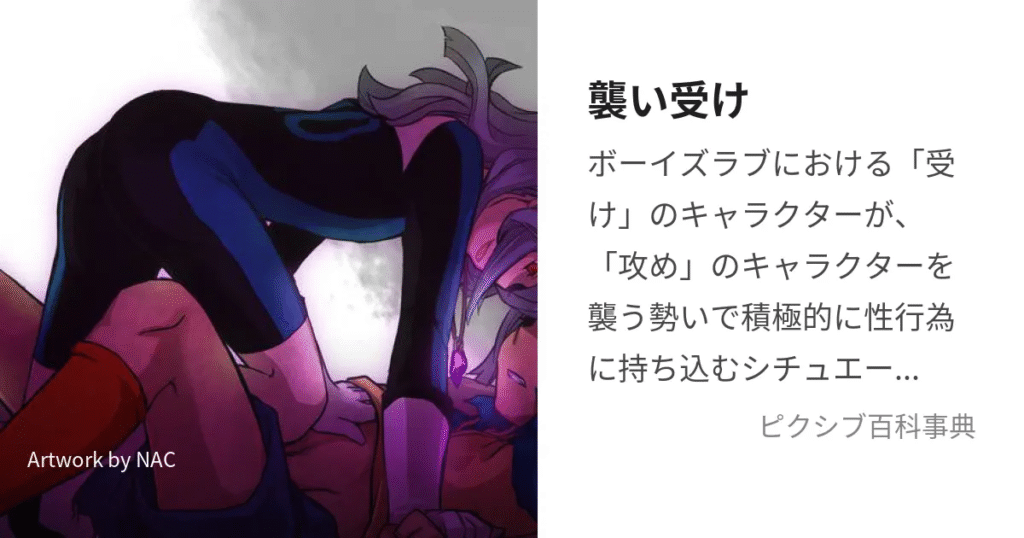
This term is used to describe the kind of bottom character who is highly proactive in pursuing the object of their affection. The osoi-uke is to be compared with the sosoi-uke (誘い受け): where a sosoi-uke might say, “I’m so sweaty, I simply must take off my shirt,” and flirt with their potential beau, the osoi-uke is more forceful, perhaps even resorting to harassment. While they may be a “bottom,” they do not take no for an answer.
横攻め (Yoko-Zeme) – The Seme Going After a Straight Man
Now we’re getting a little spicy: the yoko-zeme (”zeme” being the same as “seme,” though the “s” becomes a “z” thanks to the way that Japanese works) is a queer male character who is pursuing a straight character — or at least, a character in a straight relationship. While it literally means “side attack,” it comes from “横恋慕” (yokorenbo), which means “illicit love,” and can be used to describe affairs.
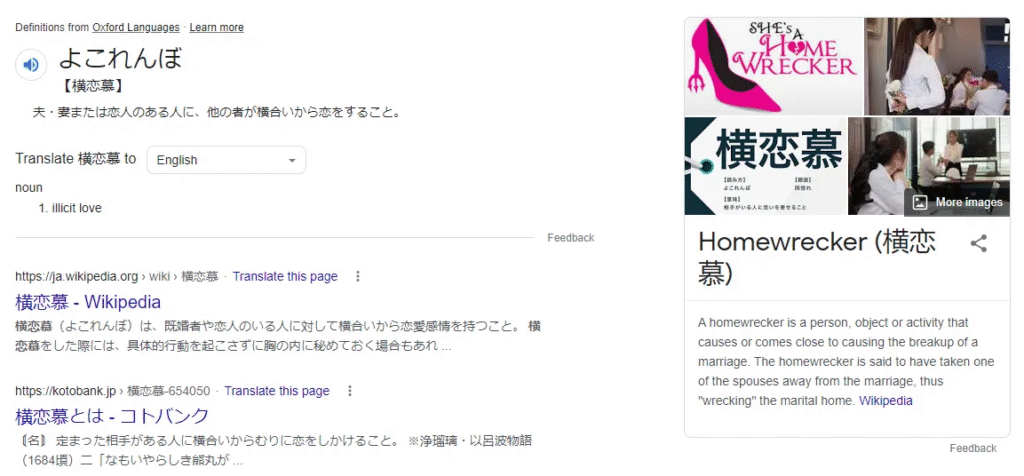
Riba (リバ)

Short for “reversible,” this is a term for people who are neither strictly (nor necessarily preferentially) either top or bottom. In English, we might use the term vers to describe such a person.
Okama (おかま)

Okama is an old-fashioned term for “homosexual man,” and occasionally for drag queens, and is generally considered offensive today. While someone may describe themselves as “okama,” it is not something that you should say about someone else, and certainly not without permission. It literally means “cooking pot,” but is slang for effeminate men. Archaic and offensive, don’t ever say this to someone you’re not familiar with.
BL Slang vs Real-Life Terms
As you can tell, there are some BL slang and terms that, while they might be acceptable to describe fictional characters, whose feelings cannot be hurt, they may be unacceptable to say to a real-life person. As such, proceed with caution.
Why These Words Matter
BL slang, and gay slang in general, can be useful both for making friends and navigating in an environment where people may be using in-jokes like “osoi-zeme.” Remember, though, not to confuse fiction with real life, and always be respectful to the people you’re talking to.

